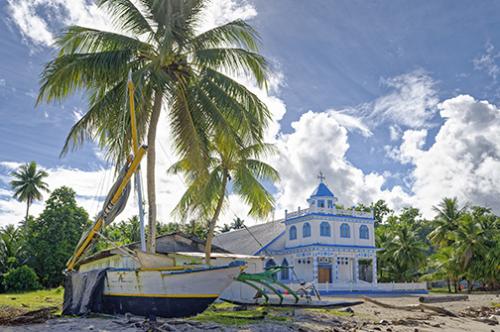Be Careful Before Attempting to Obtain FSM Citizenship Through Naturalization
Be Careful Before Attempting to Obtain FSM Citizenship Through Naturalization

As of March 2008, Public Law 15-28 was signed by President Mori “in order to allow for citizenship through naturalization to FSM nationals and children of FSM citizens.”
Since the law was passed there have been four FSM nationals that have obtained citizenship through naturalization. The Ramp & Mida Law firm assisted one of the applicants who was able to obtain FSM citizenship roughly eight months after starting the process. Be forewarned the process is time consuming and emotionally draining. Let’s get started.
In order to qualify for naturalization, all of the following requirements must be fulfilled:
Reside in the FSM for at least 5 years prior to applying;
A child of a FSM citizen parent or is a FSM National;
Provide proof of renunciation of previous citizenship;
Take an oath of allegiance to the FSM;
No felony conviction as defined by the law of the place where conviction took place; and,
Competence in at least one of the indigenous languages of the FSM evidenced by passing a language examination prepared and administered by the President or his designee.
The biggest concern for many will be the renunciation of a foreign citizenship and running the risk of being denied FSM citizenship. Assuming that happens, it may leave a person stateless and with no passport to travel. A FSM national would be no better off having renounced foreign citizenship because, at the present time, even a FSM national has no right to a FSM passport.
In one of our previous blogs, we discussed the on-going case of Hartmann v. FSM Department of Justice. The court addressed this very issue opining:
“The court can see the danger here. The naturalization applicant must first renounce, and prove that he or she has renounced, his or her other citizenship, but apparently can still be denied FSM citizenship… Under the present circumstances, that would leave the applicant as a FSM national with no right to a passport or a passport from any other country either, effectively denying the FSM national of any ability to travel.
That raises the question whether it might be unconstitutional to deny a FSM passport to a FSM national. Naturally, if any passports were issued to FSM nationals, those passports would need to be clearly marked as such so that the passport holder could not use tat passport to exercise rights reserved only to FSM citizens.”
The Hartmann court is clearly telling our government that FSM nationals have a right to travel and, thus, a right to a passport. We can only hope that the FSM government is taking the necessary steps to ensure nationals can continue to travel albeit not enjoy the full rights of a FSM citizen–the most important being the right to own land.
The risk of being stateless and losing the right to travel was certainly the utmost concern in our representation of an applicant. It was therefore crucial that the then president agreed in writing before the renunciation of the foreign citizenship that the applicant would essentially be guaranteed citizenship through naturalization if all the requirements were met. A letter was issued from the President’s office with the assistance of the FSM Department of Justice ensuring citizenship through naturalization. It must be noted that such a guarantee was obtained with the former administration and it is unclear whether the current administration would be willing to do the same.
What about the language exam, some may ask. It is administered by an immigration officer. There is no standardized test. The applicant is basically asked to write and speak in one of the four indigenous languages. Fluency, based on the the test given, is not a requirement so long as the basics are there. The test is subjective.
What about the residency requirement? The applicant has the burden to show the five-year residency immediately prior to applying for naturalization. But what about the thousands and thousands of Micronesians/FSM nationals that live abroad? That’s a touchy subject we realize, but does physically living in the FSM really make one more Micronesian? Is it fair to penalize FSM nationals or their children that have moved abroad to find a better life yet own lands back home? Worth mentioning is that Article III, section 3 of our constitution in talking about citizenship and nationals make no mention of a residency requirement. Let’s just say that the law can always be amended.
In the end, naturalization is available for those of you that are a FSM national, a foreign citizen, and over the age of 21. But you must have resided in the FSM for five years prior to applying, have basic knowledge in the language, aren’t a convicted felon, and will renounce your foreign citizenship.
Be careful! There is a lot at risk, and it’s a life changing decision. Make sure you know for sure what you want to do before taking the plunge and be sure to have legal advise.
